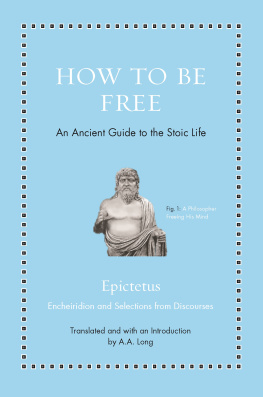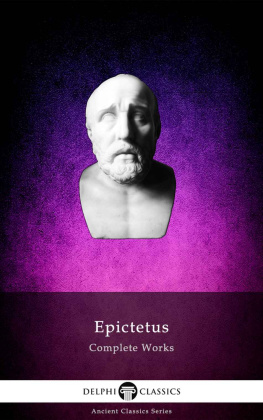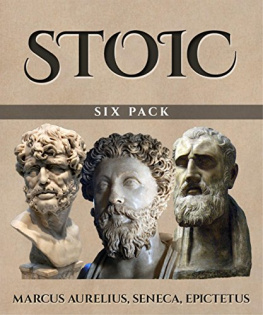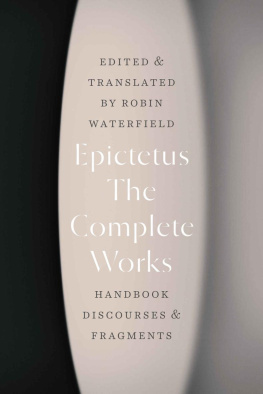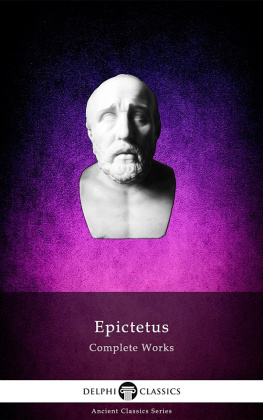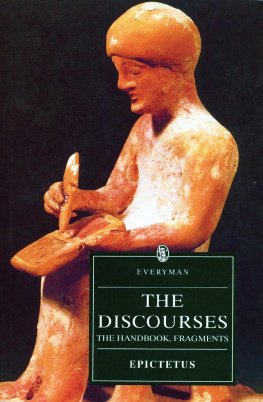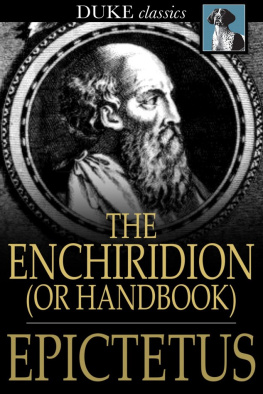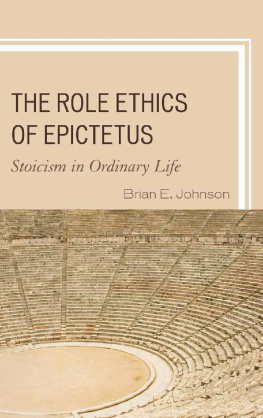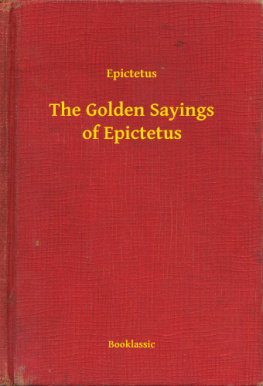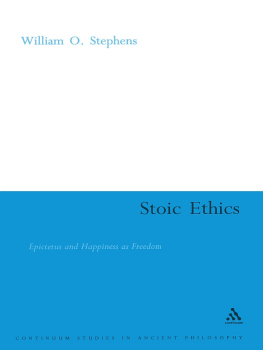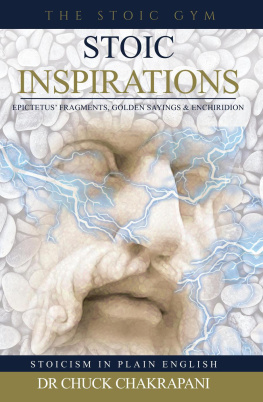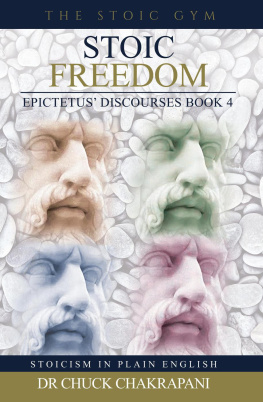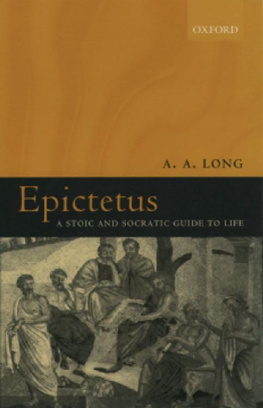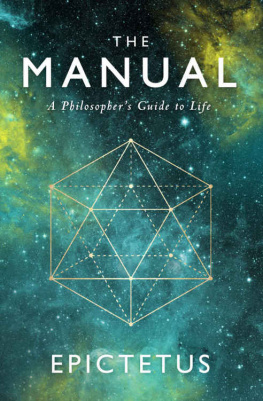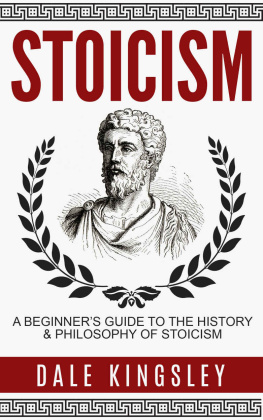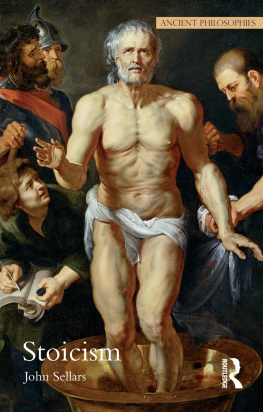
HOW TO BE FREE
ANCIENT WISDOM FOR MODERN READERS
Ancient Wisdom for Modern Readers presents the timeless and timely ideas of classical thinkers in lively new translations. Enlightening and entertaining, these books make the practical wisdom of the ancient world accessible for modern life.

How to Be a Friend: An Ancient Guide to True Friendship by Marcus Tullius Cicero.
Translated and with an introduction by Philip Freeman
How to Die: An Ancient Guide to the End of Life by Seneca.
Edited, translated, and introduced by James S. Romm
How to Win an Argument: An Ancient Guide to the Art of Persuasion by Marcus Tullius Cicero.
Selected, edited, and translated by James M. May
How to Grow Old: Ancient Wisdom for the Second Half of Life by Marcus Tullius Cicero.
Translated and with an introduction by Philip Freeman
How to Run a Country: An Ancient Guide for Modern Leaders by Marcus Tullius Cicero.
Selected, translated, and with an introduction by Philip Freeman
How to Win an Election: An Ancient Guide for Modern Politicians by Quintus Tullius Cicero.
Translated and with an introduction by Philip Freeman
HOW TO BE
FREE

An Ancient Guide to the Stoic Life
Epictetus
Encheiridion and Selections
from Discourses
Translated and with an introduction
by A. A. Long
PRINCETON UNIVERSITY PRESS
PRINCETON AND OXFORD
Copyright 2018 by Princeton University Press
Requests for permission to reproduce material from this
work should be sent to
Published by Princeton University Press
41 William Street, Princeton, New Jersey 08540
6 Oxford Street, Woodstock, Oxfordshire OX20 1TR
press.princeton.edu
All Rights Reserved
LCCN 2018935439
ISBN 978-0-691-17771-7
British Library Cataloging-in-Publication Data is available
Editorial: Rob Tempio and Matt Rohal
Production Editorial: Sara Lerner
Text and Jacket Design: Pamela Schnitter
Jacket Credit: Statue of unidentified Roman philosopher,
possibly the Stoic Euphrates. Heraklion Museum, Crete
Production: Erin Suydam
Publicity: Jodi Price
Copyeditor: Jay Boggis
This book has been composed in Stempel Garamond
Printed on acid-free paper.
Printed in the United States of America
1 3 5 7 9 10 8 6 4 2
F OR D AVID
CONTENTS
INTRODUCTION
How to be free!? Is it a question or an exclamation, a political manifesto or a longing to go native, an aspiration for autonomy or the route to emancipation from bondage? This book presents an ancient Greek philosophers take on freedomfreedom construed as living in agreement with nature, owning and ruling oneself, becoming a world citizen, desiring always and only what you are assured of gettingand much more. Epictetus (c. AD 55135), our author and guide to the Stoic life, was born a slave (his Greek name means acquired), and entered service as a slave in the household of Epaphroditus, a power broker in Neros Rome, and himself a freedman. By the time Epictetus publicly delivered his thoughts on freedom, he had enjoyed many years of manumission, but the experience of slavery left its mark on his philosophy through and through. The first lesson of the Encheiridion, his handbook guide to Stoicism, insists that everything that is truly our own doing is naturally free, unimpeded, and unconstrained.
Freedom, according to this notion, is neither legal status nor opportunity to move around at liberty. It is the mental orientation of persons who are impervious to frustration or disappointment because their wants and decisions depend on themselves and involve nothing that they cannot deliver to themselves. The Emperor Marcus Aurelius (reigned AD 161180) took the point and reflected on it in his Stoic Meditations. And the novelist, Tom Wolfe, followed suit when, in his 1998 novel A Man in Full, he imagines his young hero escaping from both a literal and a metaphorical prison after reading and digesting the Discourses of Epictetus.
The chief constraint on personal freedom in ancient Greece and Rome was what Epictetus knew at first hand, the social practice and indignity of slavery. It was slavery, the condition of being literally owned and made to serve at anothers behest that gave ancient freedom its intensely positive value and emotional charge. Slaves bodily movements during their waking lives were strictly constrained by their masters wishes and by the menial functions they were required to perform. But slaves, like everyone else, had minds, and minds as well as bodies are subject to freedom and constraint. You can be externally free and internally a slave, controlled by psychological masters in the form of disabling desires and passions and cravings. Conversely, you could be outwardly obstructed or even in literal bondage but internally free from frustration and disharmony, so free in fact that you found yourself in charge of your own well-being, lacking little or nothing that you could not provide for yourself. The latter, in essence, is the freedom that Epictetus, the ancient Stoic philosopher, made the central theme of his teaching.
Epictetus in His Time and Place
In the early years of the second century of our era, this ex-slave established a school for young men in the northwestern Greek city of Nicopolis, which had become a fashionable metropolitan center. One of his students was a brilliant youth called Arrian. Lucius Flavianus Arrianus, to give him his full name, was so impressed by his teachers message that he produced eight books of Discourses from the lectures on Stoicism he had heard Epictetus deliver, writing them out in more or less verbatim form; and he also drafted the summary of them that we know as the Encheiridion, or handbook. The work you are presently reading, How to Be Free, contains my translations of the Encheiridion and of nine excerpts from the four surviving books of Discourses. Arrian went on to have an illustrious career in Roman administration, and he published many other books including a history of Alexander the Great. We dont know how he managed to reproduce the actual words of Epictetus, but the text that has come down to us, written in koin, the colloquial Greek also used in the New Testament, is clearly the voice of his teacher and not merely Arrians adaptation of the way the philosopher spoke.
As a guide to the Stoic life, Epictetuss philosophy, especially in the Encheiridion format, has been popular ever since the text was first edited and printed in the sixteenth century. Translated and retranslated into numerous languages, his words strike home because they focus so sharply and memorably on situations that are the common lot of people at every time and place. The emotions to which he propounds remedyfear, anxiety, envy, anger, resentment, griefare everyones experience, whether you live in Imperial Rome or modern America. To that extent Epictetus needs no introduction. Yet, while many of the scenarios he pictures are familiar place-fillers for our own experience, they also include his distinctive milieu and the mores of his distant time.
We find ourselves in a world that includes slaves (Encheiridion ), but the Encheiridion in general has no obvious gender orientation, and it is completely free from machismo. The you and we Epictetus addresses could be any of us with minimal need to register cultural difference.
Next page
